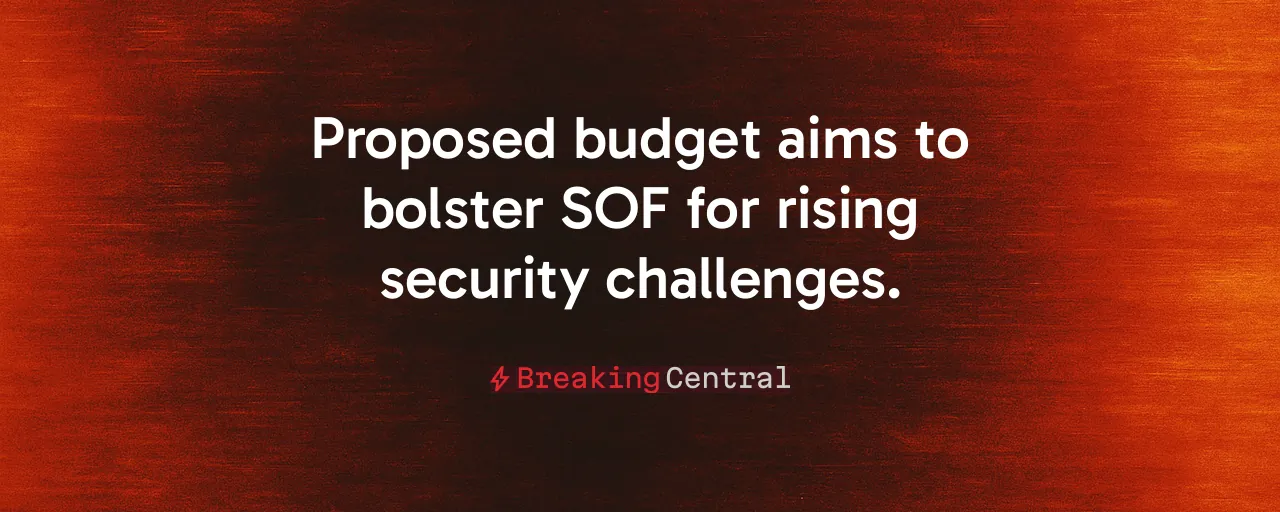Warriors Stretched Thin
America's Special Operations Forces stand as our shield in a world growing more dangerous by the day. From countering Russian propaganda in Eastern Europe to confronting Iran's proxies in the Middle East, these elite units have seen a 200% spike in presidentially directed missions over the past three years, Defense Secretary Pete Hegseth told the House Armed Services Committee on June 12, 2025. Yet their funding lags behind. This gap threatens our national security at a time when we can least afford it.
President Donald J. Trump's proposed 2026 defense budget seeks to address this shortfall. Hegseth emphasized that the plan prioritizes resources to meet the escalating demands on these forces. Global threats, China's expanding reach in Africa, Russia's moves in Ukraine, and Iran's destabilizing influence require precision and skill. Special Operations Forces deliver both, operating in over 80 countries with a budget that's a mere 2% of the Pentagon's $849.8 billion for 2025.
These warriors achieve what larger forces cannot. Their work, from precision strikes to building partner capacity, shapes battlefields before conflicts erupt. But with only a fraction of the $49.2 billion allocated to nuclear deterrence, their resources are stretched thin. Why are we underfunding the very units we rely on most?
A Budget Out of Step With Reality
Special Operations Command's funding has barely budged since 2019, losing 14% of its purchasing power as inflation bites. Meanwhile, combatant commands report a 35% surge in requests for SOF capabilities from 2023 to 2025, with crisis-response deployments spiking in the Middle East, Europe, and the Indo-Pacific. This disconnect puts our security at risk.
Hegseth's solution is straightforward. He listens to operators and their families to identify needs, equipment, training, and support for those enduring frequent deployments. This approach ensures resources align with real-world demands, a stark contrast to bureaucratic inertia. The focus is on empowering those who serve, ensuring budgets are not padded for show.
Progressive lawmakers, like Senator Elizabeth Warren, advocate tighter oversight and question un-itemized defense increases. They argue diplomacy or multilateral efforts could reduce the need for military action. But when adversaries use cyberattacks, disinformation, and proxies to exploit global instability, words alone fall short. Special Operations Forces provide targeted solutions, preventing larger conflicts without massive troop deployments.
Investing in People, Not Just Gear
Funding goes beyond hardware and sustains the warriors themselves. Hegseth highlighted that rigorous training standards, upheld by elite selection processes, boost morale and unit cohesion. Operators thrive knowing they're the best. Programs like Preservation of the Force and Family, used by 86% of the 73,000-strong SOF community, provide mental health and performance support, critical for enduring high operational tempo.
Yet the strain is real. The Warrior Care Program handled 7,200 wounded-warrior cases last year, keeping nearly 70% on active duty. Nonprofits like Operation Healing Forces offer vital retreats, but government investment provides the necessary leadership. Underfunding risks burnout, recruitment gaps, and family strain. Are we willing to let our finest falter when they're needed most?
Some policymakers advocating for reduced defense spending suggest diverting SOF funds to conventional forces or civilian initiatives, claiming broader investments serve national interests better. This overlooks the unique value of SOF. Their small teams deliver outsized impact, from disrupting enemy networks to strengthening allies, making them essential in a world of complex threats.
Time to Act for Our Defenders
The proposed budget increase offers hope. In April 2025, bipartisan lawmakers raised alarms over SOCOM's loss of 5,000 billets since 2021, including key information-operations roles. They pledged to boost funding, with plans to restore end strength and expand irregular-warfare resources. The Global SOF Foundation urges doubling SOF's share to 4% of the Pentagon's budget, a small price for their strategic weight.
Our adversaries don't pause, and neither can we. The 2025 'America First' National Defense Strategy tasks SOF with shaping environments before crises escalate, from countering Chinese influence in the Philippines to checking Russian moves in the Baltics. Underfunding these units gambles with our future. President Trump and Hegseth see this clearly, prioritizing a lean, lethal military that projects strength smartly.
Congress has a responsibility to follow through. Special Operations Forces are America's edge in a volatile world. They deserve resources that match their courage and skill. The question is whether America can afford not to fund them.
